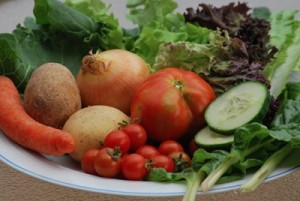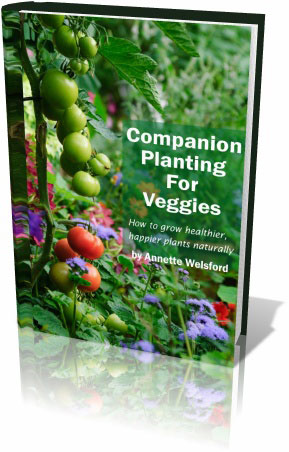Improve Your Diet with Fruit and Vegetables and Lose Weight
A large percentage of the world’s population is overweight or obese, leading to health problems that cost trillions of dollars every year. And one of the reasons for this is that people don’t eat healthy food – like fresh fruit and vegetables.
Because of this Britain has launched a policy for reducing obesity and improving diet, and it’s the kind of policy that people everywhere in the world should take to heart.
Problems Related to Obesity
In England it has been found that most people are overweight or obese. Figures released by their Department of Health on March 25, 2013 state that this includes 61.3% of all adults, and 30% of children aged two to 15 years.
The problem is that overweight people have a much higher risk of getting Type 2 diabetes, heart disease and certain types of cancer. Very fat people also find it more difficult to find employment; and obesity can have a direct effect on mental health and self esteem.
It is reported that health problems associated with obesity and being overweight cost the National Health Service more than £5-billion annually. By 2020 they want to see a sustained downward trend in excess weight levels of children, as well as a significant downward trend in excess weight levels of adults.
Overcoming Overweight and Obesity Problems
One of the best ways to lose weight is to eat and drink in a healthier manner. The other is to be more active.
In Britain the Department of Health is giving people advice on how to do this. They are also improving the labelling on drinks and food products and encouraging businesses and organisations to come to the party. Actions that they believe will help people eat more healthily include:
- reducing harmful ingredients in commercial foodstuffs (like salt and fat)
- helping people eat fewer calories (largely by downsizing portions)
- encouraging people to eat more fruit and veg – their recommendation is that everyone should have five portions of fruit and veg every day, and suggest people grow their own veggies at home
A Closer Look at the Fruit and Veg We Eat
The 5 A DAY programme states that most fruit and veg counts towards the five per day regime – and this includes dried, frozen and canned foods. But because there have been so many changes in agricultural practices over the past decade, the Department of Health’s Food Composition and Diet Team has undertaken a nutritional survey to assess food values. Their findings were published in the last week of March 2013, in four separate pdf documents totalling more than 2,315 pages. In short, it was found that in spite of changes in agricultural practices (especially the types of fertilizers that are now used, as well as increased geographic origins – including those of imported products – and an increasing number of new cultivars that are grown and made available commercially; as well as the fact that the handling of fruit and veggies after harvesting has also become more sophisticated) the nutritional content of fruit and vegetables sold commercially has remained unchanged. It’s still as good for you as it ever was.
The survey, Nutrient analysis of fruit and vegetables set out to analyse the nutritional composition of various vegetables, fruits, and vegetable-based products, including commonly used items like baked beans, potato products, tomato puree and several fruit juices. Fresh, frozen and canned products were included. A total of 1,073 samples were obtained from retail outlets and they were analysed for a range of nutrients that included vitamins, minerals, fatty acids and fat, protein, carbohydrates and fibre, as well as energy content. Asian-type foods that have recently become very popular worldwide (including baby spinach, rocket and pak choi) were also included in the survey.
To ensure that seasonal fruit and veg was fully covered, the sampling was done in two batches: summer and autumn, and autumn and winter.
The Result
“There is no evidence of major changes in the nutrient content of fruit and vegetables based on this survey and any changes are unlikely to be nutritionally significant in a varied diet.”
Nutrient analysis of fruit and vegetables is just one of many ongoing nutrient analysis surveys that they carry out in an endeavour to monitor the diet of those living in the UK, and to be able to provide information about food that is up to date and relevant.
But at the end of the day we can all monitor our own diets, and it really isn’t difficult to increase our consumption of fresh fruit and vegetables.
Tags: 5 A DAY, cancer, fruit and vegetables, heart disease, lose weight, Nutrient analysis of fruit and vegetables, overweight and obesity problems, Type 2 diabetes












